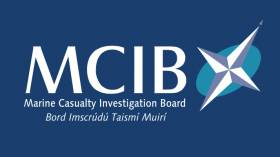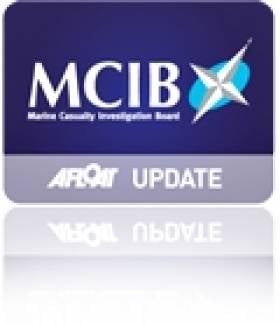Displaying items by tag: John O'Brien
A new bill before the Dáil seeks to amend the “bizarre circumstances” that mean there is no legal obligation for members of the Marine Casualty Investigation Board (MCIB) to have relevant marine accident experience.
As TheJournal.ie reports, the Merchant Shipping (Investigation of Marine Casualties) Amendment Bill 2019 tabled by Mattie McGrath TD has been welcomed by relatives of two men who drowned off Helvick Head in May 2010.
The families of John O’Brien and Patrick Esmonde have taken issue with the standard of the MCIB investigation into their deaths.
The MCIB report published in February 2012, which called for better safety awareness among leisure boat users, did not conclude exactly how the pair came to enter the water. An inquest into the tragedy more than 18 months later returned an open verdict.
McGrath, who says he has “worked closely with John O’Brien’s sister Anne-Marie” on the proposed legislation, claims that the lack of a legal mandate for MCIB investigators to have relevant accident experience “has always been a major issue for the two families, who have never accepted the official outcome of the investigation into the deaths on the summer’s day”.
TheJournal.ie has much more on the story HERE.
Safety Advice for Leisure Boaters in MCIB's Helvick Head Report
#MCIB - The Marine Casualty Investigation Board (MCIB) has called for better safety awareness among leisure boat users in its report into the deaths of two men off Helvick Head in Co Waterford in May 2010.
John O'Brien and Pat Esmonde were lost overboard from their small RIB on 23 May 2010, and their remains were recovered two days later. Post-mortems confirmed that both died by drowning.
The report does not conclude exactly how the incident occurred. But accounts from eyewitnesses who sighted the men in the minutes before state that neither was wearing a lifejacket, despite the legal requirement to do so - and despite O'Brien having no seafaring experience and Esmonde being unable to swim, as confirmed by their families.
The MCIB also noted that while there were two lifejackets aboard the vessel, they were for emergencies and not suitable for constant wear as per the requirements for the vessel class.
Other safety issues highlighted include the kill-cord on the engine, which was not being used, and the fact that the initial distress call was made by mobile phone and not VHF radio.
Though neither had any bearing on this specific incident, the MCIB warned in particular that mobile phone calls are closed in nature, whereas VHF distress calls can be heard and answered by any vessel in the vicinity.
The board recommends that the Minister for Transport "undertakes a highly visible information poster campaign on piers and launching areas relating to lifejackets, VHF radio and emergency contact details" and also reminds boaters of their legal obligations.
The full report is available to download as a PDF from the MCIB website HERE.






























































